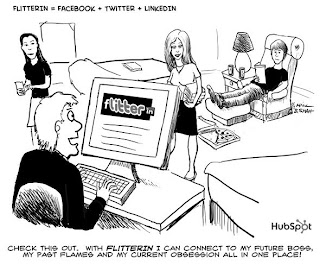LinkedIn announced two updates, according to The Wall Street Journal. First, LinkedIn introduced verified university pages, providing new cyber space for applicants, current students, alumni, faculty, and staff to engage with one another. Second, LinkedIn dropped the minimum age for the website to 13 (14 in the U.S.). Facing these new changes, some people are concerned about whether teenagers should be allowed to access an additional social networking site. They ask: will it be early?
I completely understand where the criticism comes from. Many teenagers are already allowed to use a variety of social networking sites. Recently, Twitter even completely removed the restriction on age limit (used to be 13 or older). LinkedIn was established as the social networking site for professionals. What is good for teenagers to spend additional time on another network? Also, will it be too early for teenagers to get engaged in the professional world?
When it comes to career preparedness, I always believe the earlier the better. If I were a parent of teenagers, I would be glad to see my kids “hanging out” on LinkedIn. The university pages can be very helpful to teenagers when they need to make an informed decision about majors and colleges. Besides verified university pages, teenagers and college students can also check out pages for their dream employers and get a feeling of the organizational culture. The more they know about their dream employers, the better they will understand the employers’ expectations, which will help them make a better plan for their career.
If I were an admission officer in a university or a recruiter for a company, I would also be glad to talk to a teenager on LinkedIn or just any social networking sites. While students need to make informed decisions, universities and companies also need to assess the “fit” between the candidates and the job/organization. Many universities and companies have already been actively engaging with the candidates on other social networking sites, why not on LinkedIn as well?
Besides these two, what other changes do you see on LinkedIn? What is your experience with the changes? Please share your experience and thoughts with us.
Relevant discussion:
Reference:


Comments
Post a Comment